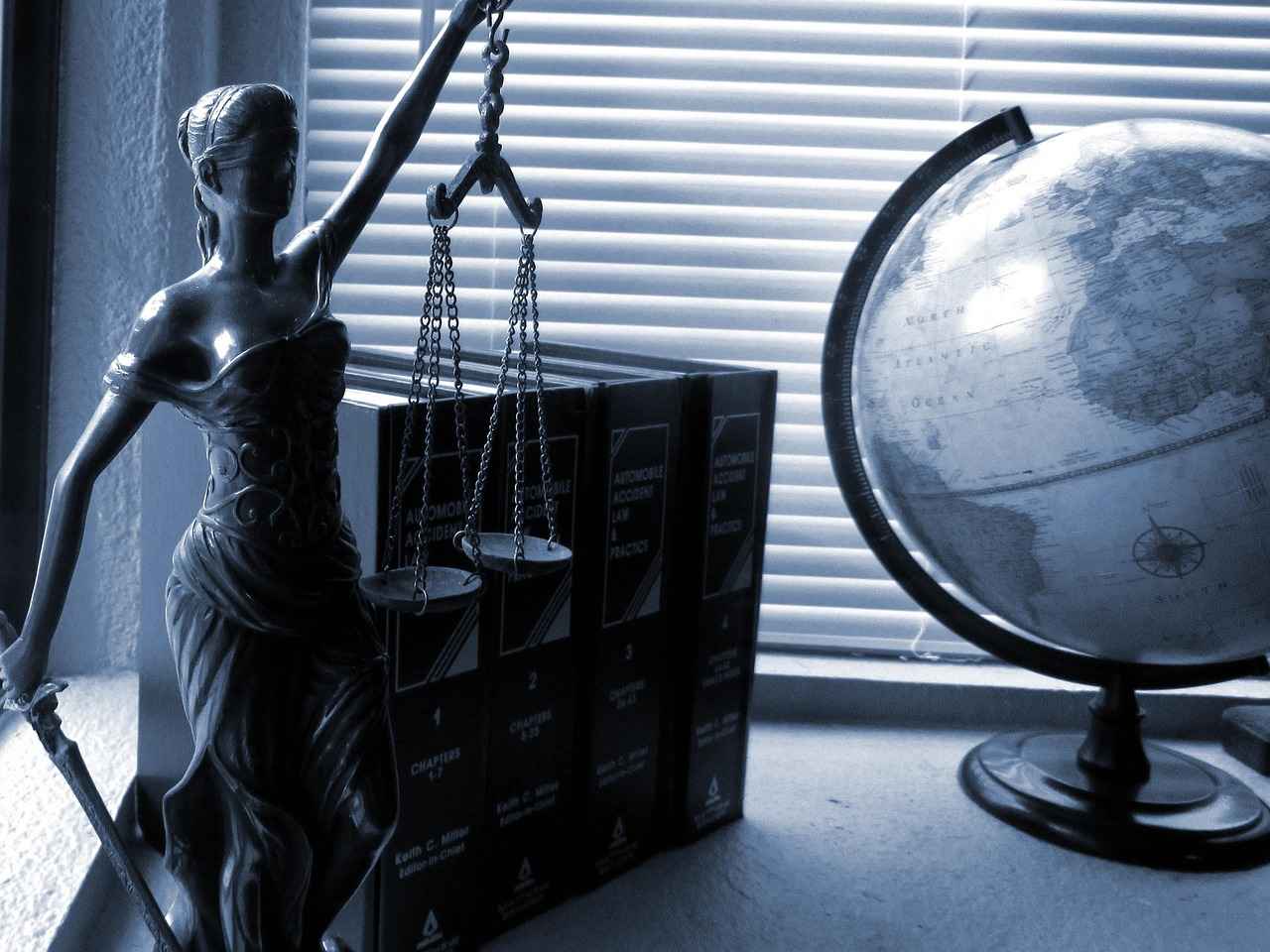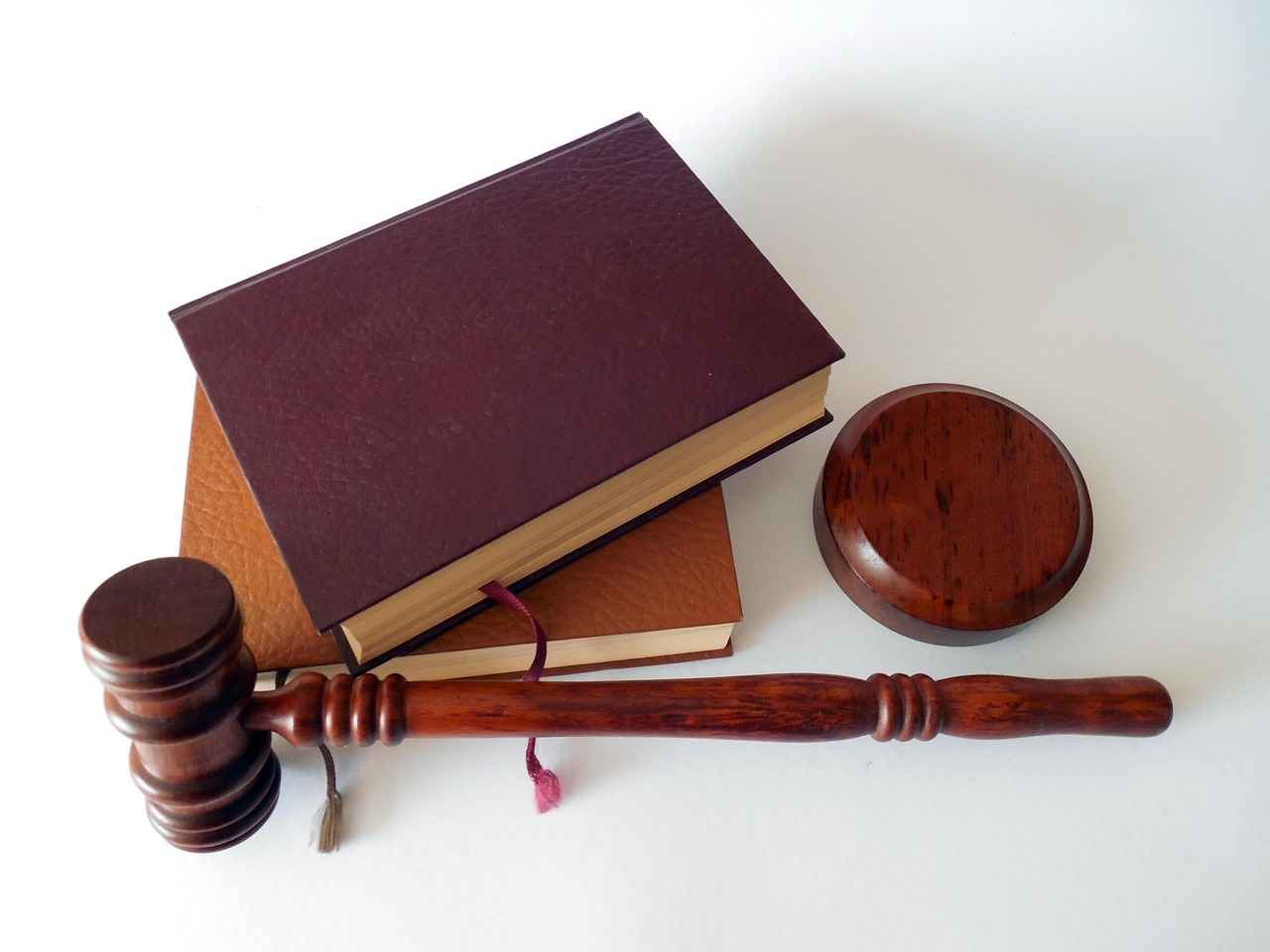This article explores various types of legal cases in the U.S. and offers expert guidance on selecting the most qualified attorneys in Reno, Nevada, to handle these cases effectively.
Personal injury cases are among the most common legal issues individuals face. These cases typically arise when someone suffers harm due to another’s negligence, such as in car accidents, slip and falls, or workplace injuries. To find a qualified attorney for personal injury cases, consider the following:
- Experience: Look for attorneys who specialize in personal injury law and have a proven track record of winning similar cases.
- Trial Experience: Choose lawyers who are not only skilled negotiators but also have experience in the courtroom.
- Client Reviews: Check online reviews and testimonials to gauge the attorney’s reputation and client satisfaction.
Medical malpractice claims occur when healthcare professionals fail to provide the standard of care, resulting in patient harm. Selecting a specialized attorney is crucial for navigating these complex cases. Here are some tips:
- Specialization: Ensure the attorney specializes in medical malpractice and has extensive knowledge of medical procedures and laws.
- Consultation: Take advantage of initial consultations to assess the attorney’s understanding of your case.
- Success Rate: Inquire about their history of successful outcomes in similar cases.
Breach of contract cases can arise in various contexts, from business agreements to personal contracts. To effectively navigate these disputes, consider hiring an attorney with expertise in contract law. Important factors include:
- Legal Knowledge: Look for attorneys with a strong background in contract law and negotiation.
- Communication Skills: Choose someone who can clearly explain legal terms and processes.
- Track Record: Ask about their past successes in resolving breach of contract cases.
Property disputes often involve issues related to ownership, boundaries, or rights. Finding an attorney skilled in real estate law is essential for effectively resolving these matters. Key considerations include:
- Real Estate Expertise: Ensure the attorney has experience in property law and understands local regulations.
- Negotiation Skills: Look for someone who can negotiate effectively on your behalf.
- Reputation: Research their standing in the community and among peers.
Landlord-tenant disputes can range from eviction notices to security deposit disagreements. Having a knowledgeable attorney can help both parties understand their rights and obligations. Here’s how to find the right lawyer:
- Specialized Experience: Look for attorneys who focus on landlord-tenant law.
- Local Knowledge: Choose someone familiar with local housing laws and regulations.
- Client Testimonials: Seek feedback from previous clients regarding their experiences.
Defamation law encompasses both libel (written defamation) and slander (spoken defamation). Choosing an attorney experienced in media and defamation law is crucial. Consider the following:
- Legal Expertise: Ensure the attorney has a deep understanding of defamation laws and precedents.
- Case Evaluation: A good attorney should provide a clear assessment of your case’s merits during the initial consultation.
- Negotiation Skills: Look for someone skilled in negotiating settlements.
Employment disputes can involve wrongful termination, discrimination, or wage issues. An attorney specializing in labor law can provide invaluable assistance. Important factors to consider include:
- Labor Law Expertise: Choose attorneys who focus on employment law and have a solid understanding of workers’ rights.
- Success Rate: Ask about their history of successful outcomes in employment-related cases.
- Client Advocacy: Look for attorneys known for advocating strongly for their clients.
Product liability cases involve harm caused by defective products. Finding an attorney with experience in consumer protection law is vital for pursuing these claims. Consider the following:
- Product Liability Experience: Ensure the attorney specializes in product liability and has handled similar cases.
- Research Skills: Look for someone who can conduct thorough investigations into product defects.
- Client Feedback: Seek testimonials from previous clients regarding their experiences.
Wrongful death claims can be emotionally charged and legally complex. An attorney with a strong background in personal injury law can guide families through this challenging process. Key considerations include:
- Compassionate Representation: Choose an attorney who demonstrates empathy and understanding.
- Experience in Wrongful Death Cases: Look for someone with a proven track record in handling wrongful death claims.
- Legal Expertise: Ensure they have a strong grasp of the legal requirements for wrongful death cases.
Class action lawsuits allow groups to collectively sue for damages. An attorney experienced in class actions can help you understand your rights and the legal process involved. Considerations include:
- Class Action Experience: Choose attorneys who have successfully represented clients in class action cases.
- Legal Knowledge: Look for someone well-versed in the specific laws governing class actions.
- Client Testimonials: Seek feedback from previous clients regarding their experiences.
Criminal defense cases can range from minor offenses to serious charges like assault. Selecting a skilled criminal defense attorney is crucial for protecting your rights. Important factors include:
- Criminal Law Expertise: Ensure the attorney specializes in criminal defense and has experience with similar cases.
- Trial Experience: Look for someone who is comfortable in the courtroom and has a successful trial record.
- Client Reviews: Check online reviews to gauge their reputation and effectiveness.
Divorce and related family law matters can be emotionally taxing. An attorney specializing in family law can help navigate custody, support, and asset division issues. Consider the following:
- Family Law Specialization: Choose attorneys who focus specifically on family law.
- Negotiation Skills: Look for someone skilled in negotiating settlements that serve your interests.
- Client Advocacy: Seek attorneys known for advocating strongly for their clients.
Bankruptcy cases require specialized knowledge of financial law. Finding an attorney with experience in bankruptcy can help individuals navigate their financial challenges effectively. Key considerations include:
- Bankruptcy Expertise: Ensure the attorney specializes in bankruptcy law and understands the different types of bankruptcy.
- Client Reviews: Check testimonials from previous clients regarding their experiences.
- Compassionate Representation: Look for someone who demonstrates empathy and understanding during this challenging time.

Understanding Personal Injury Cases
Personal injury cases are a significant area of law in the United States, arising when individuals suffer harm due to another party’s negligence. These cases can encompass a wide range of incidents, including automobile accidents, slip and fall accidents, and workplace injuries. Given the complexities involved in personal injury claims, it is essential to find a qualified attorney who can effectively represent your interests.
When searching for a personal injury attorney, consider the following steps:
- Research Experience: Look for attorneys who specialize in personal injury law and have a proven track record of successful case outcomes. An experienced attorney will understand the nuances of personal injury claims and have the skills necessary to negotiate settlements or represent you in court.
- Check Credentials: Verify the attorney’s credentials, including their education, bar association membership, and any special certifications in personal injury law. This information can often be found on their law firm’s website or legal directories.
- Read Reviews: Online reviews and testimonials from previous clients can provide insight into an attorney’s reputation and the quality of their services. Websites like Avvo and Martindale-Hubbell offer ratings and reviews for legal professionals.
- Schedule Consultations: Most personal injury attorneys offer free initial consultations. Use this opportunity to discuss your case and assess the attorney’s approach and demeanor. Pay attention to how well they communicate and whether they seem genuinely interested in your situation.
- Understand Fee Structures: Personal injury attorneys typically work on a contingency fee basis, meaning they only get paid if you win your case. Make sure to discuss their fee structure upfront and clarify any additional costs that may arise during the legal process.
In addition to these steps, it’s important to be aware of red flags when choosing an attorney. Avoid lawyers who guarantee specific outcomes, as this is often unrealistic in legal matters. Be cautious of those who pressure you into signing agreements quickly or who have numerous complaints filed against them with the state bar association.
In summary, finding the right personal injury attorney requires careful consideration and research. By following these guidelines, you can increase your chances of securing effective legal representation that will advocate for your rights and help you achieve a favorable outcome in your case.

Navigating Medical Malpractice Claims
Medical malpractice is a serious issue that arises when healthcare professionals fail to provide the standard of care expected in their field, resulting in harm to patients. This can include errors in diagnosis, treatment, aftercare, or health management. Understanding the intricacies of medical malpractice claims is crucial for anyone seeking justice and compensation for their suffering.
When pursuing a medical malpractice case, one of the most important steps is to choose a specialized attorney with experience in this specific area of law. The right attorney can significantly influence the outcome of your case. Here are some expert tips on how to find the best legal representation for your medical malpractice claim:
- Look for Specialization: Ensure that the attorney specializes in medical malpractice cases. These lawyers are familiar with the medical terminology and legal standards required to prove negligence.
- Check Credentials: Investigate the attorney’s background, including their education, years of experience, and any professional affiliations. A good attorney should be licensed to practice in your state and have a track record of successful cases.
- Seek Referrals: Personal recommendations can be invaluable. Ask friends, family, or healthcare professionals for referrals to reputable attorneys who have experience with medical malpractice claims.
- Read Reviews: Online reviews and testimonials can provide insight into an attorney’s reputation and past performance. Websites like Avvo and Martindale-Hubbell can be useful resources.
- Schedule Consultations: Most attorneys offer free initial consultations. Use this opportunity to ask questions about their experience, approach to your case, and potential outcomes.
- Evaluate Communication: Choose an attorney who communicates clearly and promptly. You want someone who will keep you informed and explain complex legal concepts in a way you can understand.
- Discuss Fees: Understand the attorney’s fee structure before hiring them. Many medical malpractice attorneys work on a contingency fee basis, meaning they only get paid if you win your case.
It is also essential to be aware of the statute of limitations for filing a medical malpractice claim in your state. This is the time limit within which you must initiate legal proceedings. Missing this deadline can result in losing your right to seek compensation.
Gathering evidence is another critical component of a successful medical malpractice claim. This may include medical records, expert testimonies, and documentation of your injuries and losses. Your attorney will guide you through this process, ensuring that all necessary evidence is collected and presented effectively.
In summary, navigating medical malpractice claims requires careful consideration and the right legal support. By following these guidelines and choosing a qualified attorney, you can enhance your chances of achieving a favorable outcome in your case.

Breach of Contract Disputes
Breach of contract cases can arise in a variety of situations, including business transactions, employment agreements, and real estate deals. When one party fails to fulfill their obligations as outlined in a contract, it can lead to significant financial and emotional stress for the affected party. Understanding the nuances of contract law is essential for navigating these complex disputes effectively.
To begin with, it is crucial to identify the specific type of breach that has occurred. Breaches can be classified as minor or material. A minor breach, also known as a partial breach, occurs when the non-breaching party receives the benefit of the contract, albeit not in the exact manner specified. In contrast, a material breach significantly undermines the contract’s purpose, providing grounds for legal action. Knowing the difference can help in determining the appropriate legal recourse.
When seeking an attorney to handle a breach of contract case, consider the following factors:
- Experience in Contract Law: Look for attorneys who specialize in contract law and have a proven track record of handling similar cases. Their expertise can make a significant difference in the outcome of your dispute.
- Reputation: Research online reviews and testimonials from previous clients. A reputable attorney should have positive feedback and a history of successful resolutions.
- Communication Skills: Effective communication is vital. Choose an attorney who is responsive and can explain legal concepts in a way that you understand.
- Fee Structure: Understand the attorney’s fee structure upfront. Some may operate on a contingency basis, while others may charge hourly or flat fees. Ensure that you are comfortable with the financial arrangements before proceeding.
Additionally, it is advisable to have an initial consultation with potential attorneys. This meeting can provide insights into their approach and help you gauge their compatibility with your case. Prepare a list of questions to ask, such as:
- What is your experience with breach of contract cases?
- What strategies do you typically employ in these types of disputes?
- How do you keep clients informed about the progress of their case?
Red flags to watch out for include attorneys who make unrealistic promises or seem more interested in their fees than your case. Trust your instincts; if something feels off, it may be worth seeking additional opinions.
In major metropolitan areas like New York City, Los Angeles, and Chicago, the competition among attorneys can be fierce. Utilize platforms such as Avvo, FindLaw, or LegalMatch to compare attorneys based on their specialties and client reviews. Additionally, local bar associations often provide referral services that can connect you with qualified attorneys in your area.
In summary, successfully navigating breach of contract disputes requires a thorough understanding of the legal landscape and careful selection of a qualified attorney. By considering experience, reputation, communication skills, and fee structures, you can find the right legal representation to advocate for your interests.

Resolving Property Disputes
Property disputes can arise from various issues, including ownership claims, boundary disagreements, and rights to use or access land. These disputes can be complex and emotionally charged, often requiring the expertise of a seasoned attorney skilled in real estate law to navigate the intricacies involved.
When confronted with a property dispute, the first step is to understand the nature of the conflict. Disputes may involve issues such as:
- Boundary disputes: Conflicts over where one property ends and another begins.
- Ownership claims: Questions regarding who has the legal right to a property.
- Easements: Rights to use a portion of another’s property for a specific purpose.
- Land use issues: Disagreements over zoning regulations or property usage rights.
Finding a qualified attorney is crucial for effectively resolving these matters. Here are some practical tips to help you in your search:
- Research Local Attorneys: Start by looking for attorneys who specialize in real estate law in your area. Websites like Avvo or FindLaw can provide listings and reviews of local lawyers.
- Check Credentials: Look for attorneys with proven expertise in property disputes. Verify their education, years of experience, and any specialized certifications in real estate law.
- Consultations: Many attorneys offer free initial consultations. Use this opportunity to discuss your case and assess their knowledge and approach.
- Ask Questions: Inquire about their experience with similar cases, their strategy for handling disputes, and their fee structure. A transparent attorney will provide clear answers and set realistic expectations.
- Seek Referrals: Personal recommendations from friends, family, or real estate professionals can be invaluable. Ask those you trust for suggestions on reputable attorneys.
It’s essential to be aware of red flags during your search. Avoid attorneys who:
- Make unrealistic promises about outcomes.
- Have poor communication skills or are difficult to reach.
- Do not provide a clear fee structure or charge hidden fees.
Once you have selected an attorney, maintaining open communication is vital. Ensure that you understand the legal process and feel comfortable discussing your concerns. An effective attorney will not only advocate for your rights but will also keep you informed throughout the resolution process.
In summary, resolving property disputes requires a thorough understanding of real estate law and the ability to navigate complex legal issues. By following these guidelines and selecting a qualified attorney, you can effectively address your property dispute and work towards a fair resolution.

Landlord-Tenant Disputes: What You Need to Know
Landlord-tenant disputes are a common issue in the realm of real estate law, often leading to misunderstandings and conflicts between parties. These disputes can encompass a wide range of issues, including eviction proceedings, security deposit disagreements, and lease violations. Understanding the intricacies of these issues is essential for both landlords and tenants to protect their rights and interests.
One of the most frequent disputes arises from evictions. Landlords may seek to evict tenants for various reasons, such as non-payment of rent or violation of lease terms. It is crucial for landlords to follow proper legal procedures, as failing to do so can result in delays and potential legal repercussions. Tenants, on the other hand, should be aware of their rights regarding eviction notices and the grounds on which they can contest an eviction.
Another common issue involves security deposits. Many tenants are unaware of the laws governing how security deposits should be handled. In most states, landlords are required to return the security deposit within a specified timeframe after the tenant moves out, minus any deductions for damages or unpaid rent. Disputes can arise if tenants feel that deductions are unfair or if landlords fail to provide an itemized list of damages.
To navigate these complexities, it is advisable for both landlords and tenants to seek the assistance of a knowledgeable attorney experienced in landlord-tenant law. An attorney can provide valuable guidance on rights and obligations, help draft or review lease agreements, and represent clients in court if necessary. When selecting an attorney, consider the following:
- Experience: Look for attorneys who specialize in landlord-tenant disputes and have a proven track record in this area.
- Client Reviews: Check online reviews and testimonials to gauge the attorney’s reputation and effectiveness.
- Consultation: Many attorneys offer initial consultations, which can help you determine if they are a good fit for your needs.
- Fees: Understand the attorney’s fee structure upfront. Some may charge hourly rates, while others may work on a flat fee basis.
In addition, it is essential for both parties to maintain clear and open communication. Documenting all interactions, agreements, and transactions can provide crucial evidence if a dispute escalates. This includes keeping records of rent payments, written notices, and any correspondence related to the lease.
In summary, landlord-tenant disputes can be complex and emotionally charged. By understanding the key issues, knowing your rights, and enlisting the help of a qualified attorney, both landlords and tenants can navigate these disputes more effectively and achieve a fair resolution.

Defamation Cases: Libel vs. Slander
Defamation law is a critical area of legal practice that addresses the protection of individuals and entities against false statements that can harm their reputation. It encompasses two primary forms: libel and slander. Understanding the nuances between these two forms is essential for anyone considering legal action in this domain.
Libel refers to defamation that occurs in written or published form, such as articles, books, or online posts. This form of defamation can have long-lasting impacts, as written statements can be disseminated widely and remain accessible for an extended period. On the other hand, slander involves spoken statements that are defamatory. While slander may not have the same permanence as libel, it can still cause significant reputational damage, especially in public settings.
In the United States, defamation cases can be complex, often requiring a deep understanding of both legal standards and the media landscape. To successfully pursue a defamation claim, the plaintiff must typically prove that the statement was false, damaging, and made with a certain level of fault, depending on whether the plaintiff is a private individual or a public figure. Public figures face a higher burden of proof, needing to show that the statement was made with actual malice.
When navigating defamation cases, it is crucial to choose an attorney who specializes in media and defamation law. Here are some practical tips on how to find the right legal representation:
- Research Credentials: Look for attorneys with a strong background in defamation cases, particularly those who have experience with media law.
- Check Reviews and Recommendations: Utilize platforms like Avvo or Yelp to read client reviews and ratings.
- Consult Professional Associations: Organizations like the American Bar Association can provide referrals to qualified attorneys.
- Assess Communication Skills: Schedule a consultation to evaluate how well the attorney communicates complex legal concepts and their willingness to answer your questions.
- Understand Fee Structures: Discuss the attorney’s fee structure upfront to avoid any surprises later. Some may work on a contingency basis, while others may charge hourly rates.
It is also important to be aware of red flags when hiring an attorney. Be cautious of lawyers who guarantee specific outcomes, as the nature of defamation cases can be unpredictable. Additionally, avoid attorneys who do not provide clear explanations of the legal process or who seem uninterested in your case.
In summary, defamation law is a specialized field that requires a knowledgeable attorney to navigate effectively. By focusing on credentials, client feedback, and communication styles, individuals can find a qualified legal professional who can advocate for their rights and help them achieve a favorable outcome in their defamation case.

Employment Disputes and Workers’ Rights
Employment disputes represent a significant area of concern for employees and employers alike. These disputes can arise from a variety of issues, including wrongful termination, discrimination, and wage and hour violations. Understanding these matters is crucial for both parties to ensure that their rights are protected and that they navigate the complexities of labor law effectively.
When facing an employment dispute, the first step is to identify the nature of the issue. For instance, wrongful termination occurs when an employee is fired in violation of employment laws or contractual agreements. This can include dismissals based on race, gender, age, or retaliation for whistleblowing. In such cases, it is vital to consult with an attorney who specializes in labor law to assess the situation and determine the best course of action.
Discrimination in the workplace can take various forms, including hiring practices, promotions, and workplace treatment. Federal laws, such as the Equal Employment Opportunity Commission (EEOC), protect employees against discrimination based on race, color, religion, sex, or national origin. If an employee believes they have been discriminated against, they should seek legal counsel to explore their options for filing a complaint or pursuing a lawsuit.
Wage issues, including unpaid overtime or minimum wage violations, are also common in employment disputes. Employees who believe they are not being compensated fairly should gather evidence of their hours worked and pay received. An attorney with expertise in wage and hour laws can provide guidance on how to file a claim with the Department of Labor or pursue legal action against the employer.
Finding the right attorney for employment disputes in major metropolitan areas like New York City, Los Angeles, or Chicago can be overwhelming. Here are some practical steps to consider:
- Research Credentials: Look for attorneys who specialize in employment law and have a proven track record of handling similar cases.
- Check Reviews: Online platforms such as Avvo, FindLaw, and Martindale-Hubbell provide client reviews and ratings that can help gauge an attorney’s reputation.
- Consultation: Many attorneys offer a free initial consultation. Use this opportunity to discuss your case and assess whether the attorney is a good fit for your needs.
- Ask About Fees: Understand the attorney’s fee structure, including whether they work on a contingency basis or charge hourly rates.
- Red Flags: Be cautious of attorneys who guarantee outcomes, lack transparency in their fees, or have numerous complaints against them.
In summary, employment disputes can be complex and emotionally charged. Engaging an experienced attorney who specializes in labor law is essential for navigating these challenges effectively. By conducting thorough research and asking the right questions, individuals can find a qualified legal professional to advocate for their rights in the workplace.

Understanding Product Liability Cases
Product liability cases are a crucial aspect of consumer protection law, addressing the harm caused by defective products. These cases arise when a consumer suffers injury or damage as a result of a product that is unsafe, improperly designed, or lacks adequate warnings. Given the complexities involved in proving liability, it is essential to find an attorney with specialized expertise in this area.
In the U.S., product liability claims can be categorized into three main types:
- Design Defects: These occur when the product is inherently dangerous due to its design, even if it is manufactured correctly.
- Manufacturing Defects: These happen when a product is made incorrectly, leading to a safety hazard that was not intended in the design phase.
- Failure to Warn: This type involves a product that lacks adequate instructions or warnings about its potential risks, putting consumers at risk.
When seeking an attorney for a product liability case, consider the following steps:
- Research Experience: Look for attorneys who specialize in product liability and have a proven track record of handling similar cases. Review their case history and outcomes.
- Check Credentials: Verify the attorney’s qualifications, including their education, bar admissions, and any relevant certifications. Membership in professional organizations, such as the American Association for Justice, can be a good indicator of their commitment to this area of law.
- Read Reviews and Testimonials: Online reviews can provide insight into the attorney’s reputation and client satisfaction. Websites like Avvo and Martindale-Hubbell can be helpful resources.
- Consultation: Schedule initial consultations with potential attorneys. This will allow you to gauge their understanding of your case, their communication style, and their approach to legal strategy.
- Discuss Fees: Understand the attorney’s fee structure upfront. Many product liability attorneys work on a contingency fee basis, meaning they only get paid if you win your case.
Red flags to watch out for include:
- Lack of Transparency: If an attorney is vague about their fees or experience, it may be a sign to look elsewhere.
- Pressure Tactics: Be cautious of attorneys who pressure you to sign agreements quickly or who promise guaranteed outcomes.
- Poor Communication: An attorney who does not respond promptly to your inquiries may not prioritize your case.
In summary, navigating product liability cases requires not only an understanding of the legal landscape but also the right legal representation. By following these guidelines, you can find a qualified attorney who will advocate for your rights and help you pursue the compensation you deserve.

Wrongful Death Claims: Seeking Justice
When a loved one passes away due to the negligence or wrongful actions of another, it can leave families devastated and seeking justice. Wrongful death claims are not only emotionally charged but also legally complex, requiring a nuanced understanding of both the law and the emotional toll it takes on families. In such trying times, having an experienced attorney can make a significant difference in navigating the legal landscape.
To effectively pursue a wrongful death claim, it is essential to grasp the legal framework surrounding these cases. Typically, a wrongful death claim arises when an individual’s death is caused by the negligence, recklessness, or intentional actions of another party. This can include incidents such as car accidents, medical malpractice, workplace accidents, or even criminal acts. The family members of the deceased may seek compensation for various damages, including lost wages, funeral expenses, and emotional suffering.
Finding the right attorney to handle a wrongful death claim is crucial. Here are some practical steps to consider:
- Experience in Personal Injury Law: Look for attorneys who specialize in personal injury law, particularly those with a focus on wrongful death cases. Their expertise will ensure that they understand the intricacies involved in such claims.
- Track Record: Research potential attorneys’ track records in handling wrongful death claims. A history of successful settlements or verdicts can indicate their capability to represent your case effectively.
- Client Testimonials: Reading reviews and testimonials from previous clients can provide insight into an attorney’s communication style, professionalism, and overall effectiveness.
- Consultation: Most attorneys offer free consultations. Use this opportunity to discuss your case and assess whether you feel comfortable with their approach and expertise.
- Legal Fees: Understand their fee structure. Many wrongful death attorneys work on a contingency basis, meaning they only get paid if you win your case. Ensure you clarify any fees upfront to avoid surprises later.
In addition to these considerations, it is essential to be aware of potential red flags. Be cautious of attorneys who make unrealistic promises or guarantees regarding the outcome of your case. Also, be wary of those who rush the consultation process or seem disinterested in your specific situation. A dedicated attorney will take the time to listen to your concerns and provide tailored advice.
Ultimately, pursuing a wrongful death claim is a significant step toward seeking justice for your loved one. With the right legal representation, families can navigate this challenging process and work towards obtaining the compensation they deserve. Remember, the journey may be long and emotionally taxing, but having a knowledgeable attorney by your side can provide the guidance and support necessary to achieve a favorable outcome.

Class Action Lawsuits Explained
Class action lawsuits are a powerful legal tool that allows a group of individuals to collectively seek justice and compensation for damages caused by the same defendant. This type of lawsuit is particularly effective in situations where the claims of individual plaintiffs may be too small to warrant separate legal action. By banding together, plaintiffs can share the costs of litigation and increase their chances of a favorable outcome.
In the United States, class action lawsuits are commonly filed in cases involving consumer fraud, employment discrimination, environmental disasters, and defective products. For example, if a company produces a faulty product that causes harm to many consumers, a class action lawsuit can be filed on behalf of all affected individuals. This not only streamlines the legal process but also ensures that the defendant is held accountable for their actions on a larger scale.
When considering a class action lawsuit, it is essential to work with an attorney who specializes in this area of law. An experienced attorney can help you understand your rights, the potential risks involved, and the legal process that will be undertaken. Here are some key factors to consider when selecting a class action attorney:
- Experience: Look for attorneys who have a proven track record in handling class action lawsuits. Their experience can significantly impact the success of your case.
- Reputation: Research the attorney’s reputation through online reviews, testimonials, and referrals from trusted sources. A well-respected attorney is likely to have a history of successful outcomes.
- Resources: Class action lawsuits can be resource-intensive. Ensure that the attorney or law firm has the necessary resources to pursue your case effectively.
- Communication: Choose an attorney who communicates clearly and is responsive to your questions and concerns. You want someone who will keep you informed throughout the process.
Additionally, be wary of red flags when hiring a class action attorney. Avoid attorneys who make unrealistic promises about the outcome of your case or those who pressure you into signing agreements without fully explaining the terms. It is also crucial to ensure that the attorney is licensed to practice in your state and has no disciplinary actions against them.
In conclusion, class action lawsuits can be a vital means of achieving justice for groups of individuals wronged by the same entity. By choosing a knowledgeable and experienced attorney, you can navigate the complexities of the legal system more effectively, ensuring that your rights are protected and that you have the best chance of a successful outcome.

Criminal Defense: Assault, Battery, and More
Criminal defense cases encompass a wide array of offenses, from minor infractions to severe felonies such as assault and murder. Each case type presents unique challenges and requires a tailored approach to legal representation. Selecting a skilled criminal defense attorney is essential for safeguarding your rights and ensuring a fair trial. The legal landscape can be daunting, but understanding the nuances of each offense can empower individuals to make informed decisions when seeking legal help.
When facing charges related to assault or battery, it is crucial to differentiate between these terms. Assault typically refers to the threat or attempt to cause harm, while battery involves the actual physical act of causing injury. An attorney specializing in criminal defense will help you navigate the complexities of these definitions and their implications in court.
In cases involving drug offenses, the legal ramifications can vary significantly based on the type and amount of substance involved. A proficient attorney will be familiar with local and state laws regarding drug possession, trafficking, and distribution, and can provide a robust defense strategy tailored to the specifics of your case.
Theft and burglary cases also require specialized knowledge. Theft generally involves taking someone else’s property without consent, while burglary involves entering a structure with the intent to commit a crime. An experienced attorney can dissect the evidence against you, challenge the prosecution’s claims, and seek to mitigate penalties.
For more serious allegations such as fraud and embezzlement, having a knowledgeable attorney is vital. These white-collar crimes can lead to severe consequences, including lengthy prison sentences and hefty fines. A defense attorney with experience in financial crimes can help identify weaknesses in the prosecution’s case and advocate for alternative resolutions.
In cases of murder or homicide, the stakes are incredibly high. A seasoned criminal defense attorney can provide critical support in navigating the complexities of these charges, which may involve intricate legal arguments and extensive evidence. The right attorney will also understand the emotional toll these cases take on families and individuals involved.
DUI/DWI charges are another common area of criminal defense. The consequences of a DUI can range from fines and license suspension to imprisonment. An attorney specializing in DUI cases will be adept at challenging breathalyzer results, field sobriety tests, and procedural errors made during your arrest, potentially leading to reduced charges or even dismissal.
Domestic violence allegations can have profound implications on personal and legal fronts. An experienced attorney will not only defend against criminal charges but also help navigate any related family law issues, such as custody disputes or protective orders. Understanding the intersection of criminal and family law is crucial in these sensitive situations.
Sexual offenses, including sexual assault and child exploitation, require a nuanced defense strategy. The stigma attached to these charges can make it challenging for defendants to receive fair treatment. A knowledgeable attorney will work diligently to protect your rights and reputation while providing a robust defense.
Cybercrime is an emerging area of criminal law that encompasses various offenses, including hacking, identity theft, and online fraud. An attorney well-versed in technology and cyber law can offer invaluable insights and strategies to combat these charges effectively.
When searching for a criminal defense attorney, consider the following steps:
- Research online: Use legal directories and review platforms to find attorneys with expertise in your specific case type.
- Check credentials: Look for attorneys with relevant experience, certifications, and a strong track record in criminal defense.
- Seek referrals: Ask friends, family, or colleagues for recommendations based on their experiences.
- Schedule consultations: Meet potential attorneys to discuss your case and gauge their approach and compatibility.
- Avoid red flags: Be wary of attorneys who make unrealistic promises or pressure you into making quick decisions.
In conclusion, navigating the complexities of criminal defense requires a thorough understanding of the legal landscape and the specific charges you face. By selecting an experienced attorney who specializes in the relevant area of law, you can significantly improve your chances of a favorable outcome.

Understanding Divorce and Family Law Issues
Divorce and family law matters can be emotionally taxing for everyone involved. The complexities of custody arrangements, financial support, and asset division can create a challenging environment for families. Engaging a qualified attorney specializing in family law is crucial for navigating these sensitive issues effectively.
When seeking an attorney, it is essential to consider their experience and expertise in family law. A skilled family law attorney will not only possess a deep understanding of the legal framework surrounding divorce but will also be adept at handling the emotional aspects of these cases. Here are some key factors to consider when searching for the right attorney:
- Experience in Family Law: Look for an attorney who has substantial experience specifically in family law. This includes handling cases related to divorce, child custody, child support, and spousal support (alimony).
- Reputation: Research the attorney’s reputation in the community. Online reviews, testimonials, and referrals from friends or family can provide valuable insights into their effectiveness and professionalism.
- Communication Skills: Effective communication is vital in family law cases. Ensure the attorney is approachable and willing to explain legal concepts in a way that you can understand.
- Negotiation Skills: Many family law cases are settled out of court. An attorney with strong negotiation skills can help you reach a favorable settlement without the stress of a trial.
- Understanding of Local Laws: Family law can vary significantly by state. An attorney who is familiar with the laws in your area will be better equipped to handle your case.
Additionally, consider the cost of hiring an attorney. Family law cases can be expensive, so it’s important to discuss fees upfront. Many attorneys offer a free initial consultation, allowing you to assess their suitability for your case without financial commitment.
In major metropolitan areas like New York City, Los Angeles, and Chicago, you can utilize various platforms to find qualified family law attorneys. Websites such as Avvo and FindLaw provide directories of attorneys with ratings and reviews. Local bar associations also offer referral services that can connect you with reputable lawyers in your area.
When you meet with potential attorneys, be sure to ask specific questions about their approach to cases similar to yours. Inquire about their success rate, how they handle difficult situations, and their strategy for achieving the best possible outcome.
Lastly, watch out for red flags when selecting an attorney. If an attorney guarantees a specific outcome, pressures you to make quick decisions, or has a history of disciplinary actions, these are signs to reconsider your choice. Trust your instincts; finding the right attorney is essential for successfully navigating the complexities of divorce and family law issues.

Finding the Right Attorney for Bankruptcy Cases
When facing financial difficulties, many individuals find themselves contemplating bankruptcy as a potential solution. However, navigating the complexities of bankruptcy law requires specialized knowledge and expertise. This is where finding the right attorney becomes crucial. An attorney with a strong background in bankruptcy law can help clients understand their options, the implications of filing, and guide them through the process.
One of the first steps in finding a qualified bankruptcy attorney is to seek recommendations from trusted sources. Friends, family, or colleagues who have undergone similar financial challenges may have valuable insights. Additionally, online resources such as legal directories and review platforms can provide a wealth of information about local attorneys.
- Check Credentials: Look for attorneys who specialize in bankruptcy law and have relevant experience. This can often be verified through their websites or professional profiles.
- Consultation Meetings: Many attorneys offer free initial consultations. Use this opportunity to gauge their understanding of your situation and their approach to handling your case.
- Ask About Fees: Bankruptcy attorneys may charge different fees based on their experience and the complexity of your case. Ensure you understand their fee structure before proceeding.
When evaluating potential attorneys, it’s essential to consider their track record in handling bankruptcy cases. An attorney’s success rate can be indicative of their ability to navigate the legal system effectively. Additionally, inquire about their familiarity with the specific type of bankruptcy you are considering, whether it’s Chapter 7 or Chapter 13.
Another critical aspect to consider is the attorney’s communication style. You want an attorney who is responsive and willing to explain complex legal jargon in a way that is easy to understand. A good attorney should be able to break down the bankruptcy process, including the implications of filing, the timeline, and what to expect during each phase.
Red Flags to Avoid: Be cautious of attorneys who make unrealistic promises or guarantee outcomes. Bankruptcy law is complex, and no attorney can predict the exact result of your case. Additionally, watch for attorneys who pressure you into making quick decisions without fully explaining your options.
Finally, consider the attorney’s reputation within the legal community. Membership in professional organizations, such as the American Bankruptcy Institute, can indicate a commitment to staying updated on the latest developments in bankruptcy law. Reading client testimonials and checking for any disciplinary actions can also provide insight into an attorney’s professionalism and ethics.
In summary, finding the right attorney for bankruptcy cases involves thorough research, careful consideration of credentials, and an understanding of the attorney’s approach to client relations. With the right legal support, individuals can navigate their financial challenges more effectively, paving the way for a fresh start.
Frequently Asked Questions
- What should I look for when hiring a personal injury attorney?
When hiring a personal injury attorney, consider their experience, track record, and client reviews. It’s essential to find someone who specializes in personal injury law and has a successful history of winning cases similar to yours.
- How do I know if I have a valid medical malpractice claim?
To determine if you have a valid medical malpractice claim, consult with a specialized attorney who can evaluate the details of your case. They will assess if the healthcare provider’s negligence directly caused your injury.
- What are the common causes of breach of contract disputes?
Breach of contract disputes often arise from non-performance, delay in delivery, or failure to meet agreed-upon terms. Having an attorney experienced in contract law can help clarify your rights and options.
- How can an attorney help with landlord-tenant disputes?
An attorney can provide guidance on the legal rights of both landlords and tenants, helping to navigate issues like eviction, lease agreements, and security deposits. This can lead to a more amicable resolution.
- What should I do if I’m facing wrongful termination?
If you believe you’ve been wrongfully terminated, it’s crucial to consult with an employment attorney. They can help you understand your rights and guide you through the process of filing a claim if necessary.














